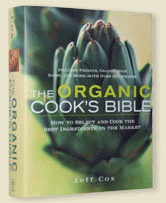Biotech Firms Now Patenting Non-GMOs
Organic Lifestyle Comments Off on Biotech Firms Now Patenting Non-GMOs
Biotech companies such as Syngenta and Monsanto have more on their agendas than simply peddling GMOs to us; they want to own and control the entire food supply, whether genetically modified or otherwise, according to Natural News.
Many people don’t know that these agricultural tech giants are involved in the business of patenting non-GMO plants and seeds. In the United States, what was once a diverse and essentially free exchange of seeds among farmers and home gardeners has become a giant industry.
The Center for Food Safety reports:
The history of seed development, distribution, and ownership reflects today’s dominant economic paradigm of the last several decades, which converts basic elements of life – such as seeds and genetic resources – into private, commercial assets.
Until the last few decades, seed development and distribution in the U.S. was largely under the purview of the public sector and augmented by hundreds of small, often family-run, seed breeder businesses, which acted mainly as distributors of publicly developed seed varieties. This contrasts sharply with the situation today in which the top ten companies control 65 percent of proprietary, or intellectual property (IP)-protected, seed.
In Europe, the patenting of non-genetically altered plants is prohibited by law, yet patents are now being routinely issued for conventionally cultivated varieties of seeds, setting precedents in favor of Big Agriculture.
The trend is towards the privatization of the things we need to survive, namely water and food. Whoever controls these elements has great power. The populace needs to become aware that companies such as Monsanto and Syngenta are looking forward to a world in which they hold the keys to our survival.
One recent example of how this works is the case of Syngenta’s patenting of a pepper strain obtained through conventional breeding methods.
The European Patent Office (EPO) granted the patent for use “as fresh produce, as fresh cut produce, or for processing such as, for example, canning.”
The patent also covers the plants, their cultivation, harvesting and seeds. The plants have been developed to produce pepper without seeds and are derived from conventional breeding using existing biodiversity. There was no genetic engineering involved in the process.
This type of patenting of conventionally bred plants and seeds is on the increase, although some of Big Ag’s patent attempts have been successfully challenged.
For example, Monsanto was originally successful when it tried to patent a tomato it claimed to have developed, but patent #EP1812575 was revoked when it was proven that Monsanto did not create the plant’s natural resistance to the fungal disease known as botrytis.
Monsanto’s clever lawyers created wording in their patent application to give the impression that the seed was genetically engineered to produce this quality. They made the tomato look like their “invention.”
Through the efforts of the international coalition called No Patents on Seeds! and other concerned activists, the efforts of Big Ag are meeting some effective resistance.
The recent move towards GMO bans in Europe are an indication that the industry giants can be successfully challenged. Now it’s time to put an end to their efforts to monopolize our natural seed resources.
Sources include:
GMWatch.org
CenterForFoodSafety.org
GlobalResearch.ca
IP-Watch.org
Learn more: http://www.naturalnews.com/051868_food_supply_control_seed_patents_Syngenta.html#ixzz3qjpa3qpf
***
GMOS IN BABY FOOD
If you feed your baby one of the following three infant formulas, you are perhaps, unknowingly, feeding them GMO corn, sugar beets, and soy, since they are often used in these companies’ products:
1. Similac
One of the most widely used brands and often given out for ‘free’ at hospitals, this baby formula is made by Abbott Laboratories.
2. Enfamil
Another baby formula often given out as ‘free’ samples to new mothers is made by Mead Johnson Nutrition. The following Mead Johnson formulas are known to have GMO toxins:
◦Enfamil with Iron
◦Enfamil with low Iron
◦Enfamil Lacto Free
◦Enfamil 22
◦Enfamil Next Step (both soy and milk varieties)
◦Enfamil Nutramigen
◦Enfamil Pro-Soybee
3. Gerber Good Start
The GMO formula made by Nestle USA is perhaps the most questionable since the company has knowingly tried to ‘patent’ water and make it a commodity. Nestle USA and Mead Johnson Nutrition have dismissed calls to remove GMOs from their infant formulas in the US, citing the approved use of GMOs by several national and global regulatory bodies.
You can boycott these companies and start making your own home-made, natural baby foods from organic ingredients. However, the assistant director of the FDA, Nick Duy, warns us against making our own baby formulas, as they might make babies sick. Glad to see the FDA is looking out for someone’s interests. Too bad it’s not the public’s.
***
CHEMICAL FERTILIZERS EXACERBATE GLOBAL WARMING
Fertilizer companies are among the world’s top climate villains, according to a new report by GRAIN, an international non-profit organization that works to support small farmers and social movements in their struggles for community-controlled and biodiversity-based food systems. The products could be responsible for up to 10 percent of global greenhouse gas emissions.
According to GRAIN’s report, recent studies show that the overall contribution of chemical fertilizers to climate change has been drastically underestimated. Calculations made by the Intergovernmental Panel on Climate Change (IPCC) of nitrous oxide emissions from the use of chemical fertilizers are three to five times less than what these studies suggest. The outdated IPCC figures also do not account for global increases in fertilizer production, the increasing reliance on shale gas as a raw material or the destructive impacts of chemical fertilisers on organic matter, the world’s most important carbon sink.
“We now can say that the use of chemical fertilizers this year will generate more GHG emissions than the total GHG emissions from all of the cars and trucks driven in the US,” says Devlin Kuyek, a researcher with GRAIN. “The good news is that there is a quick fix for this problem: a worldwide switch to agroecological practices that can achieve the same yields without chemicals.”
***
EPA MOVES TO BAN DANGEROUS PESTICIDE
A common pesticide used on citrus fruits, almonds, and other crops would be banned under a proposal recently announced by the Environmental Protection Agency, according to the Associated Press.
The proposal would prohibit use of chlorpyrifos, a widely used insecticide that is sprayed on a variety of crops including oranges, apples, cherries, grapes, broccoli and asparagus.
The pesticide, in use since 1965, has sickened dozens of farmworkers in recent years. Traces have been found in waterways, threatening fish, and regulators say overuse could make targeted insects immune to the pesticide.
U.S. farms use more than six million pounds of the chemical each year — about 25 percent of it in California.
Predictably, CropLife America, a trade group that represents pesticide producers, called the proposed ban a “drastic and unnecessary step that is caused by wasteful, agenda-driven litigation” filed by environmental groups.
“We are confident that due legal and scientific process will make this proposed action unnecessary,” said Jay Vroom, the group’s president.
###












